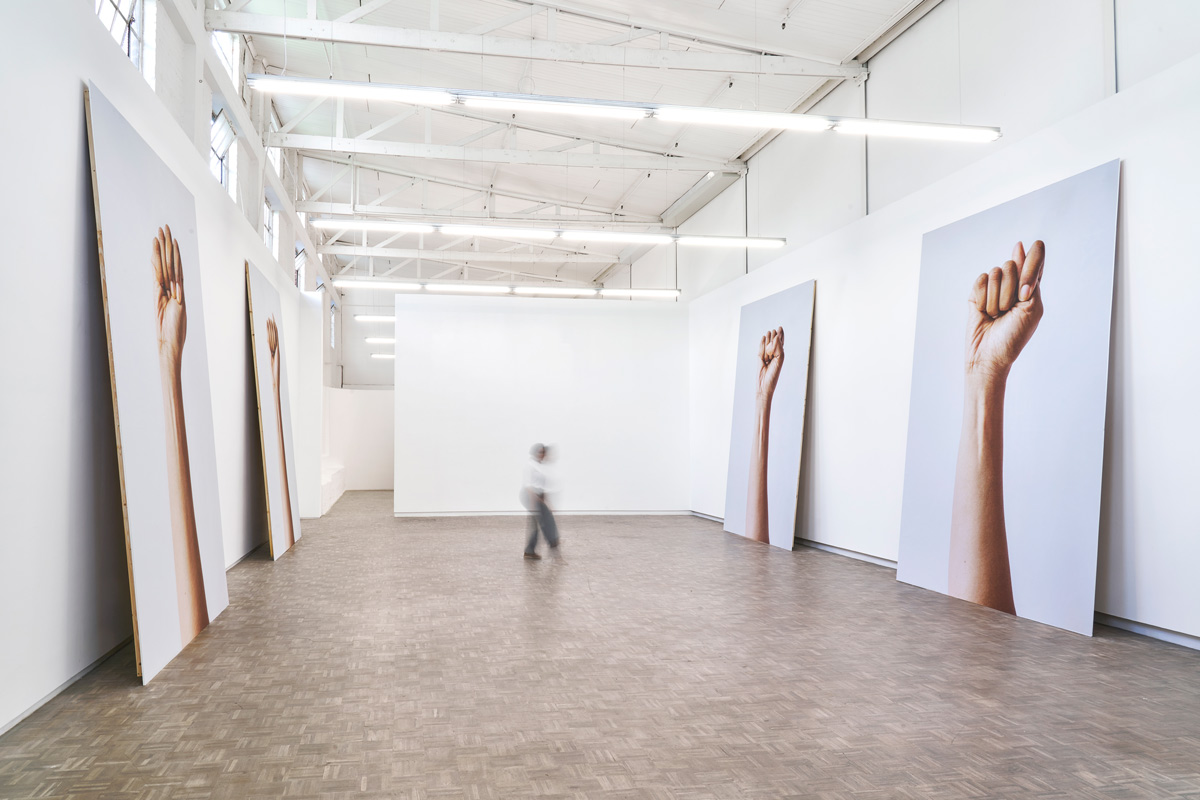

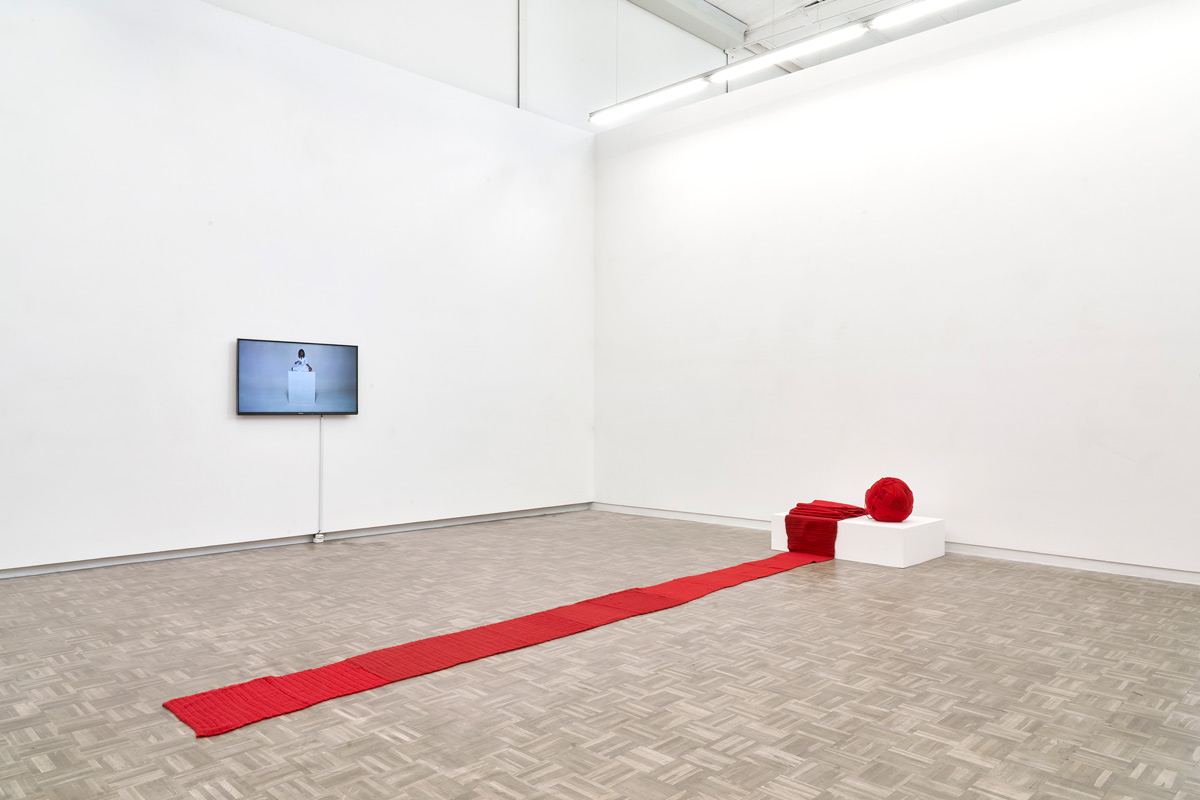

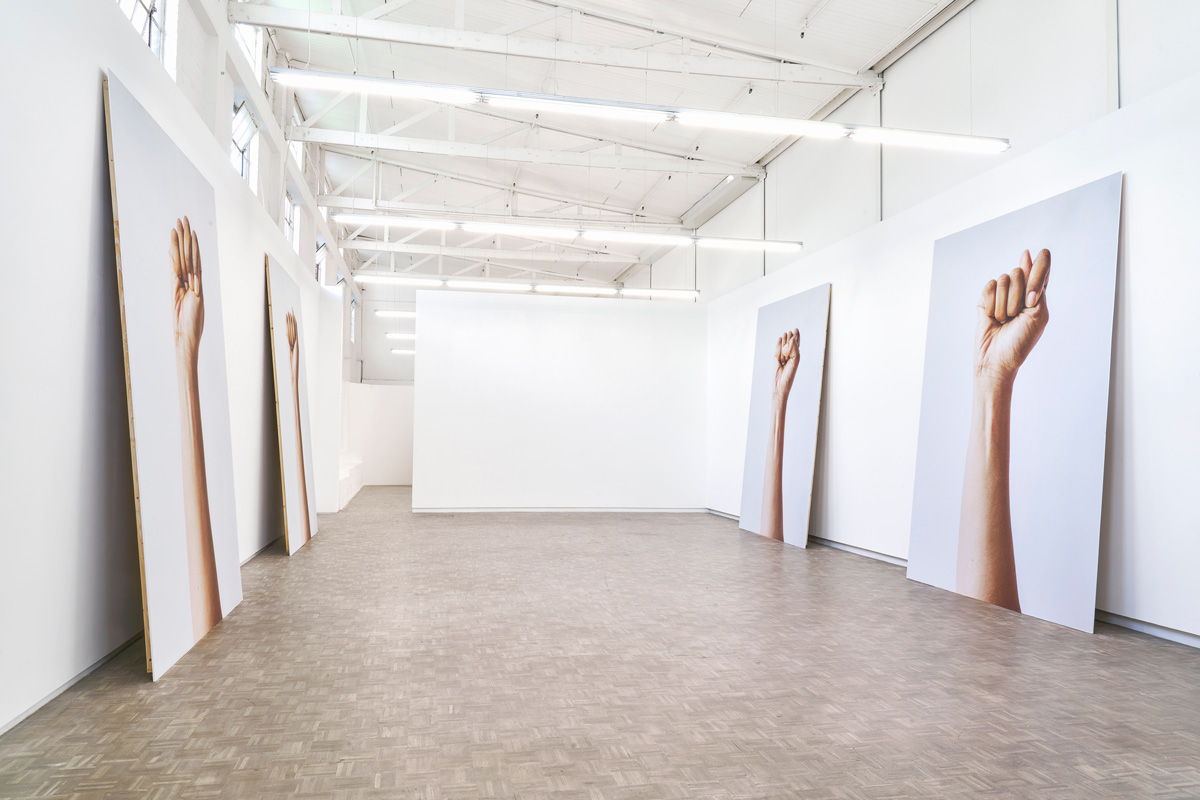
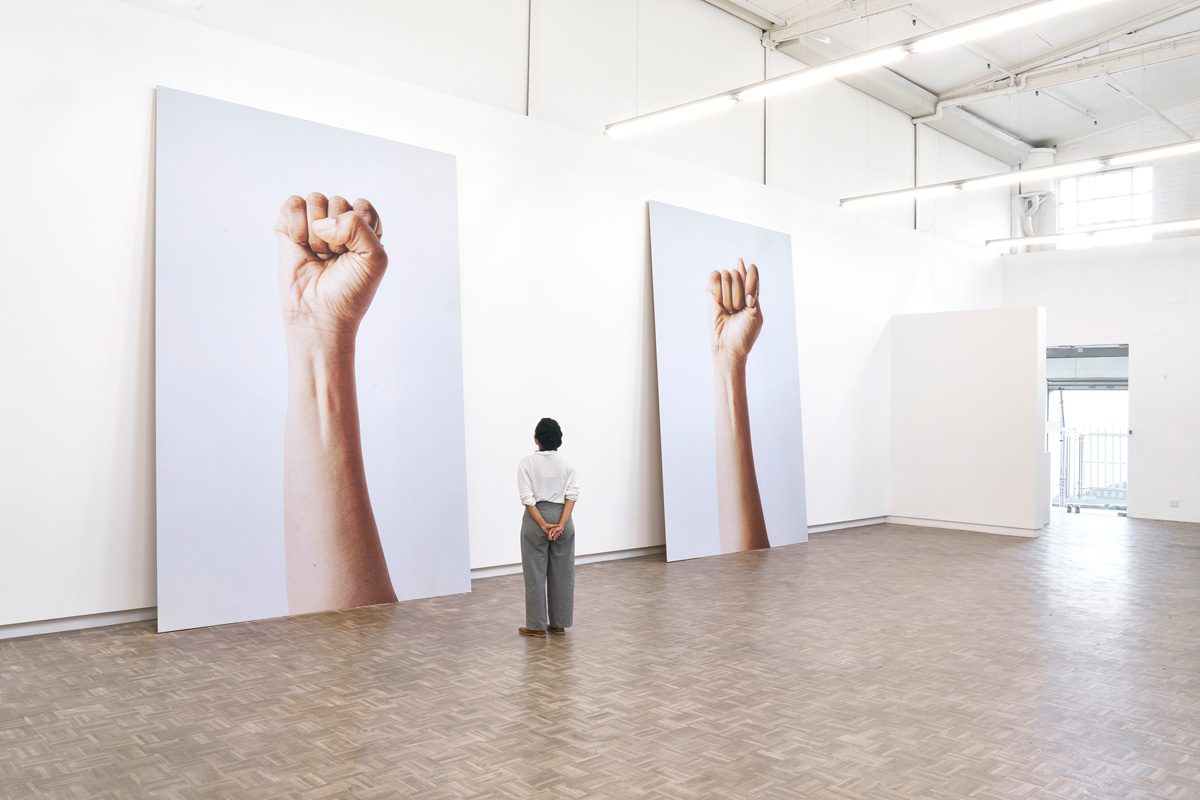
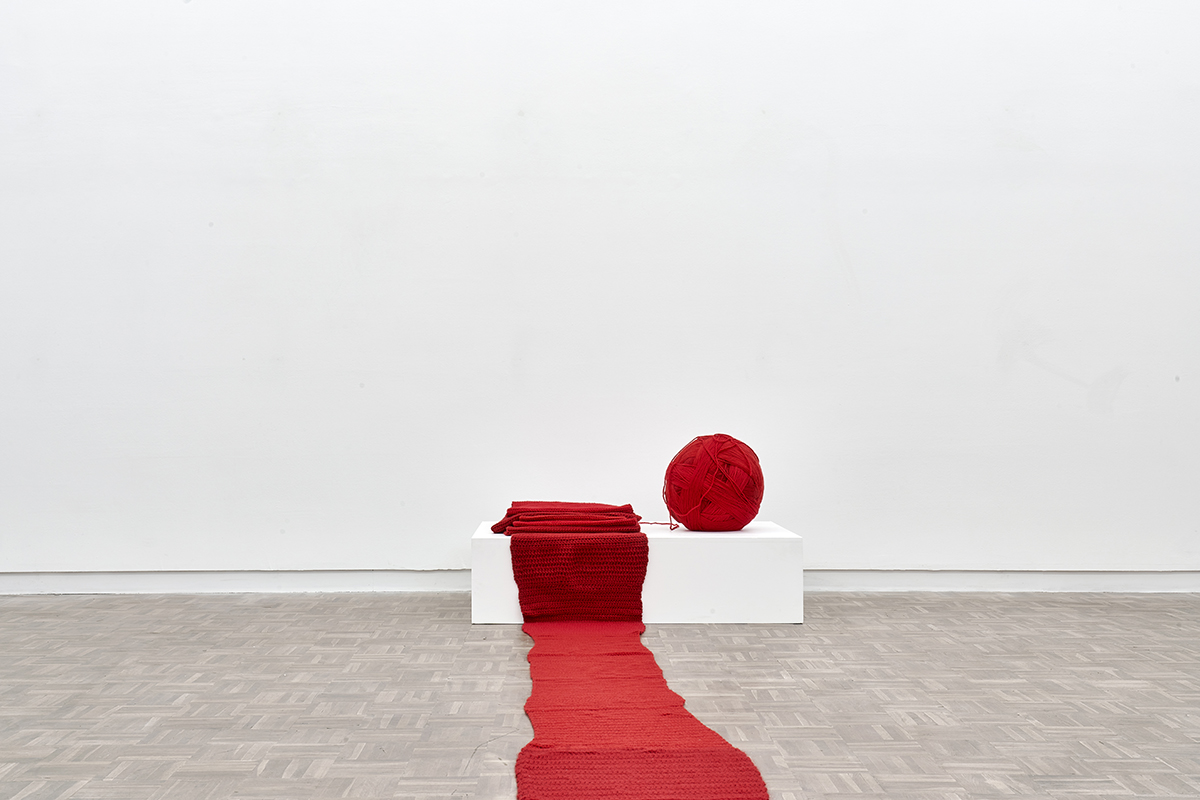

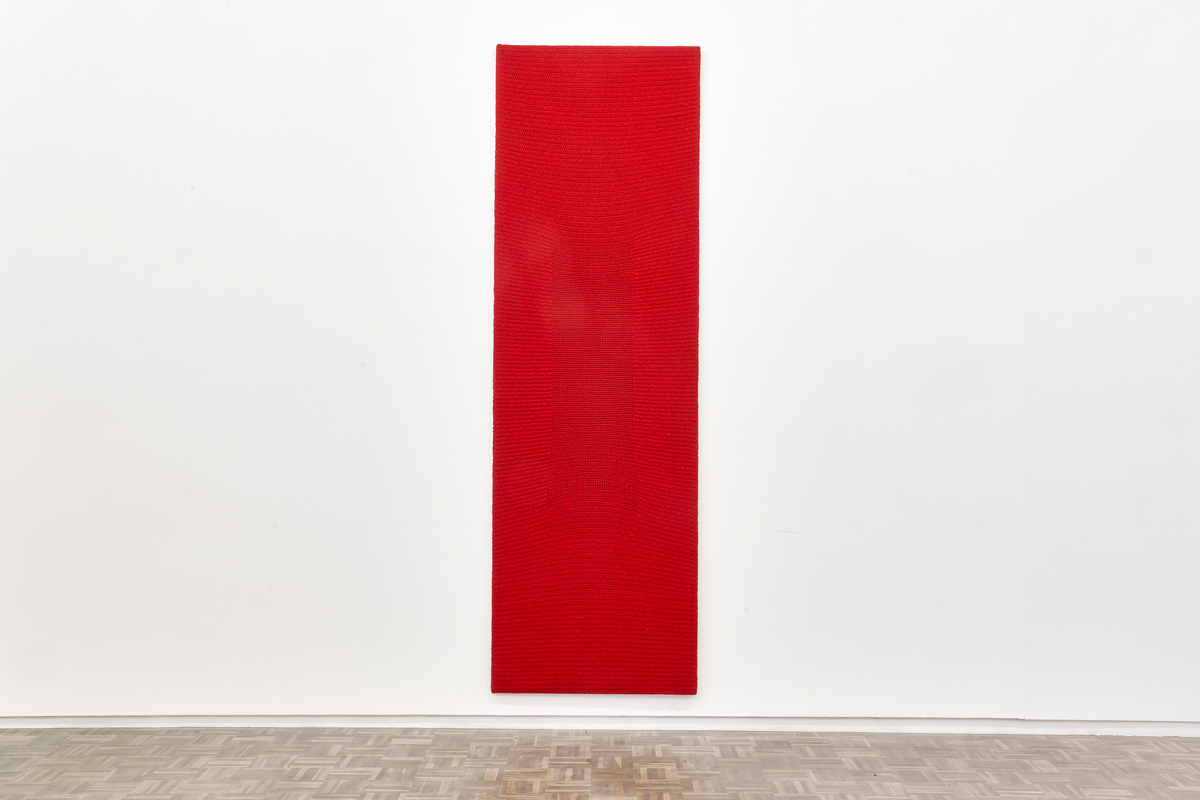


blank is pleased to present Di Sa Bonweng, a solo exhibition by Lerato Shadi. The exhibition includes a selection of works ranging from installation to performance and video. Di Sa Bonweng can be interpreted as 'the unseen', and in the context of Shadi's practice, the title opens up a multitude of potential meanings related to that which is invisible; those things that we cannot (or choose not to) see, either due to our intellectual biases or because they have been excluded from systems of knowledge production. Often comprised of Setswana words or phrases, her titles deliberately deny ready translation. For Shadi, they are both an assertion of her identity and a refusal to be 'understood' by the audience.
In I know what a closed fist means (2020), the artist interrogates universal assumptions by emphasising multivalent, subjective readings of her work. Four large-scale, floor to ceiling photographs depict raised fists with the position of the thumb in each image having a variety of associated meanings that differ depending on the viewer's own cultural background. The work's title is paradoxical in that it contradicts the endless possibility for interpretation of the individually raised fists - Shadi makes it clear that knowledge and experience are always connected to one's own perspective and cannot be easily generalised.
Shadi speaks of Mosako wa Nako as a red river. It is the product of 60 hours of labour, which Shadi carries out publicly over the course of 10 days. The 10-metre knitted object is rendered as a representation of silent narratives and acts as an architectural feature that divides the space. As M. Neelika Jayawardane states, "in highlighting work that is usually associated with feminised-and therefore often inconspicuous and devalued labour, Shadi focuses our attention to the meditative quality of her actions. Bringing the experience of meditation into her labour allows her to be present in her body and in the present moment-to-moment of labour, and for us, as her audience, to be similarly mindful in the space".1
For Shadi, the colour red has significance "in regard to its connection to corporeality and to violence." In her recent works, Series (2020), red knitted squares are sewn onto raw linen and mounted on canvas stretcher frames, referring to the tradition of panel painting, the history of which has been dominated by white male artists for centuries. Shadi's process involves preparing herself physically and mentally for the production of her work, in a kind of private, durational performance. She states, "my entire practice is a durational practice. The idea of durational works, the ideas of labour, the values of labour are also always present in my work."
Challenging common assumptions to critique Western notions of history, Shadi's work makes visible that which is invisible or overlooked. Often employing repetitive processes in her performances and video works, she argues the importance of centering - not just including - the marginalised body as a main figure of narrative experience. By placing herself at the forefront of her work, Shadi deals with the politics of cultural erasure and structural exclusion. According to Shadi, "it serves to challenge myself, and hopefully my audience as well, in how I/we are complicit in the violence of historical erasure by not fighting for a more inclusive and accurate historical narrative. I realised that - by just blindly or lazily accepting an inaccurate history - I would be sanctioning the problematic dominant narrative with my own inactivity."
1 The Beautiful Ones Will Not Be Erased, M. Neelika Jayawardane in conversation with Lerato Shadi, Albany History Museum, Makhanda (2016)
Born in Mahikeng, South Africa, Shadi lives and works in Berlin, Germany. Her work has been included on numerous institutional exhibitions, including at the Kunsthalle Münster; Museum of Fine Art, Chur, Switzerland; Musee d'Art Moderne de Paris; Neuer Berliner Kunstverein (n.b.k.), Berlin; Zeitz MOCAA, Cape Town; Kunsthal Amersfoort, Netherlands; and the Tate Modern, London. She has also exhibited at the Curitiba Biennial in Brazil and DAK'ART Dakar Biennale. In 2020, Shadi had solo exhibitions at the Kunstverein in Hamburg and KINDL Centre for Contemporary Art in Berlin. She was awarded the Alumni Dignitas Award of the University of Johannesburg in 2016, the Villa Romana Prize in 2018, and the Berliner Senat Arbeitsstipendium in 2019. Her work is represented in the collections of the Tate Modern, n.b.k Videoforum, and Iziko South African National Gallery, among others. In April 2022 her first monograph will be published with Archive Books, Berlin-Dakar-Milano.
Di Sa Bonweng is Shadi's first exhibition in South Africa in over five years, and in Cape Town in over a decade.
Exhibition press:
Krynauw, M. Moments before meaning: A conversation with Lerato Shadi. Artthrob [online] (published 2 May)